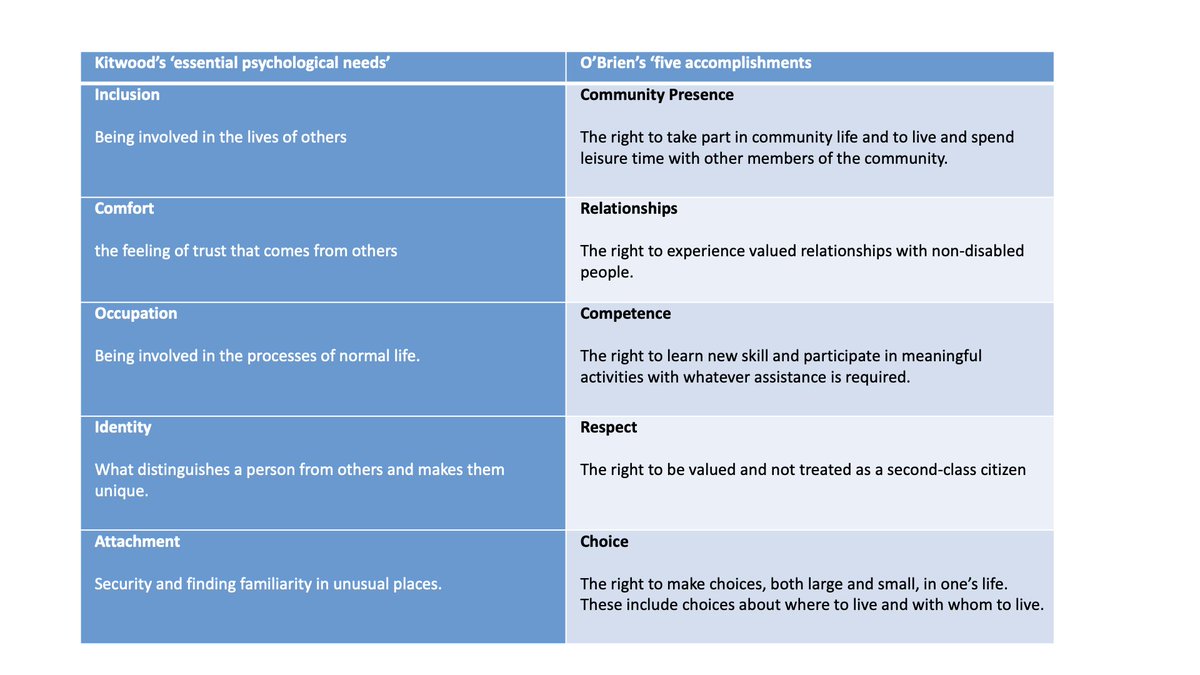
Strategy. Research. Storytelling. Activism. Co-Convener of #SocialCareFuture. Consultant & irritant. All views expressed my own, tho largely plagiarised.
2 subscribers
How to get URL link on X (Twitter) App


https://twitter.com/alzheimerssoc/status/1617894741634609152Laudable tho that might be, the lives & wellbeing many hundreds of thousands of people with dementia & their families seem not to be the focus here. I hope perhaps @AlzSocCampaigns @KateLeeCEO might put their considerable talents towards securing a social care strategy instead.

https://twitter.com/JustinWelby/status/1617878419114426369Just a quick explainer here. When we (@socfuture) did our work to develop a new vision & narrative, we'd noted how social care was typically talked about as a place or destination e.g. 'people going into social care' socialcarefuture.org.uk/wp-content/upl…

 The key omission in Kitwood's list is, for me, choice & control, including over where & with who to live, and it's the loss of control that permits institutionalisation - physically & behaviorally - and the 'malignant social psychology' therein.
The key omission in Kitwood's list is, for me, choice & control, including over where & with who to live, and it's the loss of control that permits institutionalisation - physically & behaviorally - and the 'malignant social psychology' therein.
